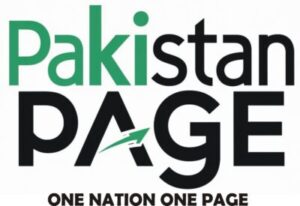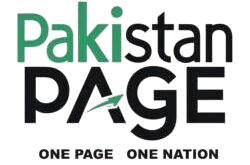ISLAMABAD : Sustainable Development Policy Institute (SDPI) emerged as a prominent accredited organization with the observer status at the Commonwealth Secretariat that hosted a landmark strategic dialogue to discuss pressing global issues and foster collaboration.
The event brought together leaders, policy makers, and representatives from newly accredited bodies across the world and featured remarks from Commonwealth Secretary-General Shirley Ayorkor Botchwey, presentations from key stakeholders, and the accreditation of seven new organizations, including SDPI.
In her opening address, Secretary-General Shirley Botchwey emphasized the critical role of accredited organizations as “agents of change and symbols of hope.” She praised their commitment to addressing global challenges such as climate change, inequality, and conflict. “When others turn away from crises, you lean in for peace, democracy, sustainability, and human dignity,” she remarked.
The Secretary-General highlighted the importance of dialogue and collaboration in tackling shared challenges, noting that this strategic meeting was the first of many to come. She expressed gratitude to the accredited organizations for their contributions and reaffirmed the Commonwealth’s commitment to supporting their efforts.
She reiterated the importance of unity and collective action, stating that “the work of accredited organizations uplifts us all. Together, we can build a more sustainable, equitable, and peaceful world.”
The event marked the accreditation of seven new organizations, including the Sustainable Development Policy Institute (SDPI), Pakistan’s premier think tank.
SDPI Executive Director Dr Abid Qaiyum Suleri expressed his gratitude for the accreditation, calling it a “dream come true.” He noted that SDPI is the first organization from Pakistan to be accredited as an observer organization at the Commonwealth Secretariat.
Highlighting the role of SDPI as a leading think tank in Pakistan and its recognition as one of the top 100 think tanks outside the United States by the University of Pennsylvania, Dr Suleri said: “We work with the government, not for the government, which allows us to enunciate our vision without any association.” He said SDPI’s research and policy outreach have contributed to the development of key national policies, including the National Industrial Policy, National Circular Policy, and New National Electric Vehicle Policy.
Dr. Suleri proposed the formation of a Commonwealth Think Tanks Association to facilitate knowledge sharing and joint advocacy on common issues such as climate change, education, and health. He also emphasized the importance of South-South and North-South cooperation, offering to share SDPI’s accreditation at COP with other Commonwealth organizations.
The meeting featured presentations from leaders of the newly accredited organizations, showcasing their work and contributions to the Commonwealth goals.
Daniel Hatton, the Chief Executive Officer of the Commonwealth Fashion Council, presented on Responsible Fashion, emphasizing sustainability and ethical practices in the fashion industry.
Philip David, Founder and CEO of the Commonwealth Heritage Forum, highlighted the forum’s capacity-building and knowledge-sharing initiatives.
Charles Garrett, Director of International Relations and Strategies at the Commonwealth, discussed the council’s mission to commemorate the Commonwealth war dead of the two world wars.
Mamta Subramniam of the Heartfulness Institute presented on the scope of the institute’s work in promoting mindfulness and well-being.
Jessica Ryckman, Executive Director of Lawyers Without Borders, shared insights on the organization’s efforts to promote access to justice.
Dr James Bonfield of Malaria No More UK presented the Commonwealth Malaria Control Program and its flagship report, underscoring the importance of collective action in combating malaria.

